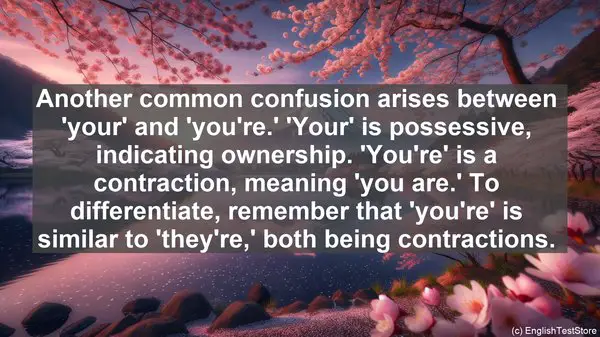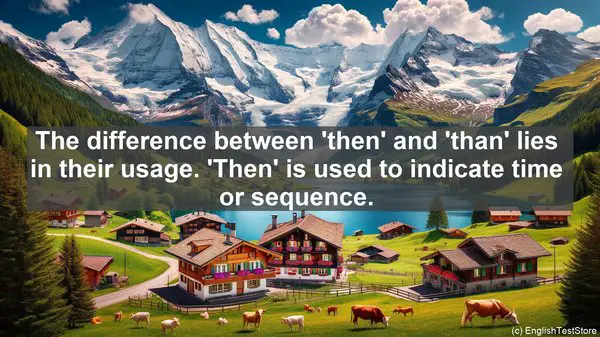Introduction: The Power of Words
Greetings, students! As language enthusiasts, we know that words hold immense power. However, some words, despite their similar spellings or pronunciations, have distinct meanings. Today, we’ll explore the top 10 commonly confused words in literature and English studies. Let’s dive in!
1. Affect vs. Effect
One of the most notorious pairs, ‘affect’ and ‘effect,’ often leave writers puzzled. ‘Affect’ is a verb, indicating influence or change, while ‘effect’ is a noun, representing the result or consequence. Remember, ‘affect’ acts, ‘effect’ is the outcome.

2. Their vs. There vs. They’re
These homophones often lead to errors. ‘Their’ is possessive, indicating ownership. ‘There’ refers to a place or location. ‘They’re’ is a contraction, meaning ‘they are.’ To avoid confusion, remember their roles: ‘their’ for possession, ‘there’ for a place, and ‘they’re’ for ‘they are.’
3. Its vs. It’s
The distinction between ‘its’ and ‘it’s’ is subtle. ‘Its’ is possessive, indicating ownership. On the other hand, ‘it’s’ is a contraction, meaning ‘it is.’ Remember, the apostrophe in ‘it’s’ represents the missing ‘i’ in ‘is.’
4. Your vs. You’re
Another common confusion arises between ‘your’ and ‘you’re.’ ‘Your’ is possessive, indicating ownership. ‘You’re’ is a contraction, meaning ‘you are.’ To differentiate, remember that ‘you’re’ is similar to ‘they’re,’ both being contractions.
5. Then vs. Than
The difference between ‘then’ and ‘than’ lies in their usage. ‘Then’ is used to indicate time or sequence. ‘Than’ is used for comparison. Remember, ‘then’ relates to time, while ‘than’ compares.

6. Who vs. Whom
The ‘who’ and ‘whom’ dilemma often arises in sentence construction. ‘Who’ is used as a subject, while ‘whom’ is used as an object. To determine which to use, ask if the word is performing an action or receiving it. If it’s performing, use ‘who’; if it’s receiving, use ‘whom.’
7. Complement vs. Compliment
These words, though similar, have distinct meanings. ‘Complement’ refers to something that completes or enhances. ‘Compliment’ refers to praise or admiration. Remember, ‘complement’ completes, ‘compliment’ praises.
8. Allusion vs. Illusion
In literary analysis, ‘allusion’ and ‘illusion’ are often confused. ‘Allusion’ refers to a reference or mention of something. ‘Illusion’ refers to something that deceives the senses. Remember, ‘allusion’ is a reference, ‘illusion’ is a deception.
9. Farther vs. Further
The difference between ‘farther’ and ‘further’ lies in their usage. ‘Farther’ refers to physical distance. ‘Further’ refers to metaphorical or figurative distance. Remember, ‘farther’ is for physical, ‘further’ is for metaphorical.
10. Capital vs. Capitol
The final pair on our list, ‘capital’ and ‘capitol,’ often cause confusion. ‘Capital’ refers to a city or wealth. ‘Capitol’ refers to a building where legislative work is conducted. Remember, ‘capital’ is a city or wealth, ‘capitol’ is a building.
